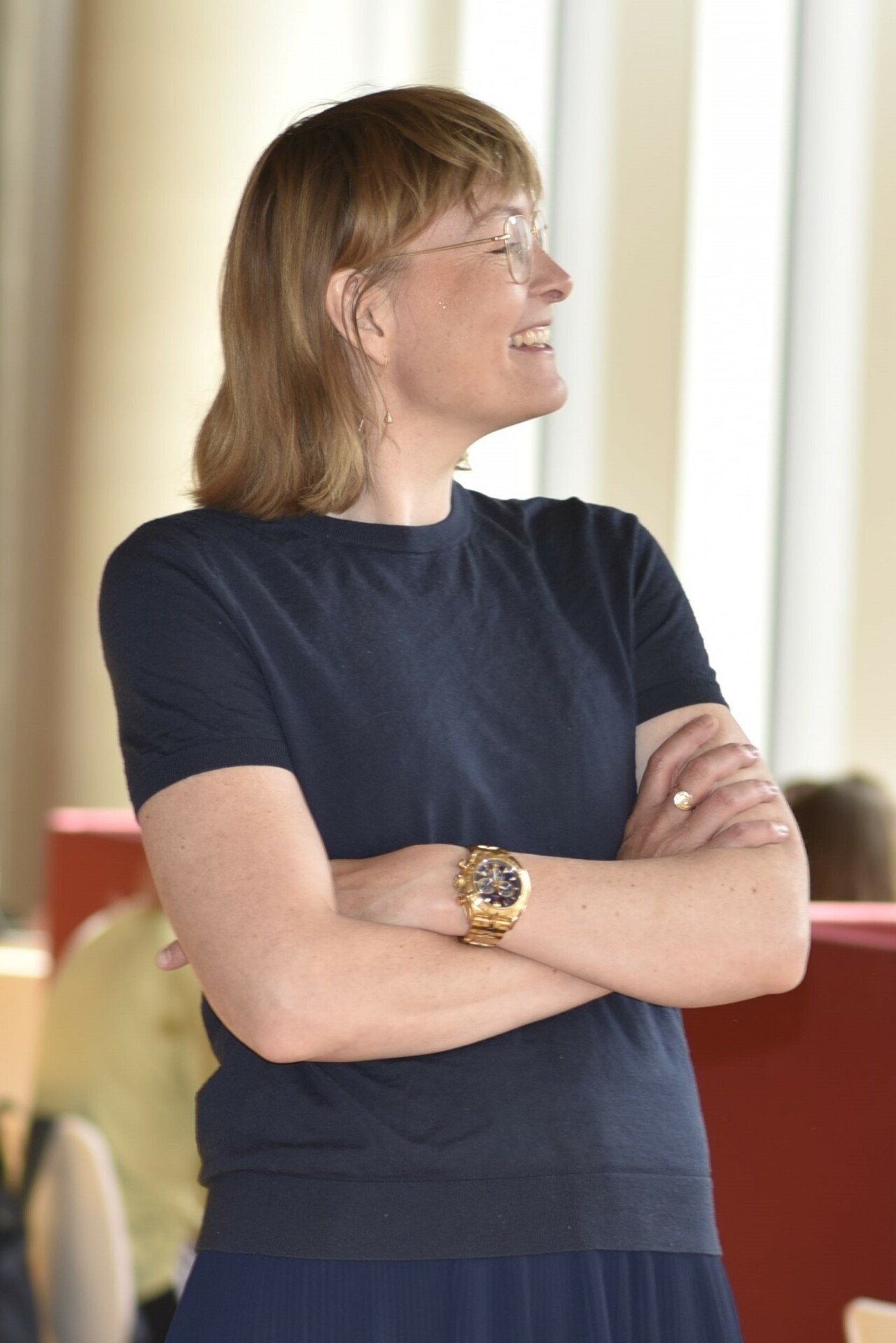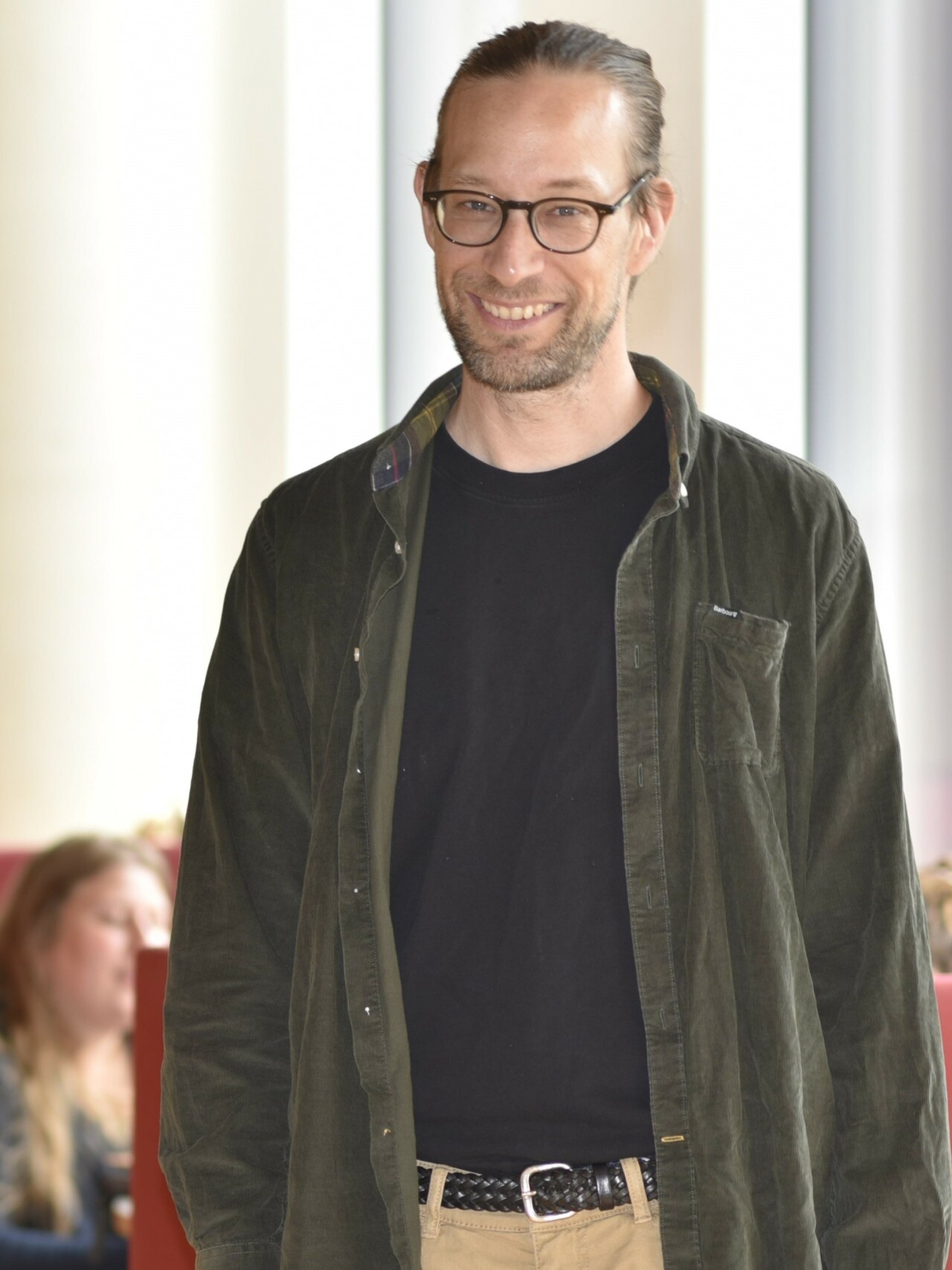Universitetsavisen
Nørregade 10
1165 København K
Tlf: 35 32 28 98 (mon-thurs)
E-mail: uni-avis@adm.ku.dk
—
Education
Artificial intelligence — Students invited to a debate on how we shape an unpredictable future and get to grips with the new technology.
Professor Rebecca Adler-Nissen recently had an application to the Department of Political Science written by a chatbot, that referred to articles that did not exist. She quickly discarded it.
FUTURE OF HUMANITY
What: The event ‘Future of humAnIty ‘ is about how new technologies affect our future, and how the next generation will control it.
Who: Michael Møller (former Under-Secretary General of the UN), Rebecca Adler-Nissen (Professor, UCPH), Matthias Christandl (Professor, UCPH), Shef Nandhra (podcaster), Frederik Ravn Klausen (PhD student, UCPH)
When: Tuesday 20 June
Where: Niels K. Jerne Auditorium, Blegdamsvej 3B (Maersk Tower)How: Read more and sign up here.
This article you are reading right now was also produced with the help of artificial intelligence, i.e. Google Translate and the transcription machine GoodTape.
You use quantum technology yourself when the GPS on your phone locates you by communicating with satellites in space.
This mix of various forms of artificial intelligence and quantum technology characterizes our daily lives and our societies in more ways than we understand ourselves. That is why researchers and experts have invited all University of Copenhagen students to a meeting with a crisis agenda. Or actually, to some critical and enlightening dialogue – about our common technological future. For better or for worse.
Two of the speakers are professors Rebecca Adler-Nissen (Faculty of Social Sciences) and Matthias Christandl (Faculty of Science).
READ ALSO: The future is now: UCPH softens up on AI rules
»Artificial intelligence raises some of the fundamental questions from when the atomic bomb was developed. Because it, also, involves potentially huge changes, philosophically and as a human,« Rebecca Adler-Nissen says and continues:
»When the internet came, Bill Gates had a vision that it would lead to peace in the world, because everyone would be able to communicate much more easily and understand each other better. This sounds a bit naïve today, but there were a lot of people in the early 1990s who bought his book. It was a utopian, very optimistic dream that technology was only a good thing. Today, we know it also has a dark side, unless we actively shape it in another direction. And now, again, many people dream that new technologies can solve the climate crisis, provide therapy, and give medical consultations to those who cannot afford to pay for a real psychologist or a medical doctor.«
Glossary
Artificial Intelligence is a technology that imitates human thinking, but is faster and often more precise. It is typically based on machine learning.
Machine learning is a kind of programme that can systematize large, unstructured amounts of data.
Generative artificial intelligence is when artificial intelligence generates completely new images, texts, music and so on.
ChatGPT is a language model and a generative AI-chatbot that converts input into output.
Quantum technology uses quantum physics to perform very complex tasks.
Quantum computers can make far more complex calculations than ordinary computers and in less time. They are still in the development phase.
Another question that arises is »what is education?« Because when students are already making use of artificial intelligence, you should, also, integrate it into the teaching and adjust the format of the exams to fit the new reality, according to the professors. However, they still see value in being able to think without the use of artificial intelligence.
As for the question of education, this also includes considerations about what types of job it is that artificial intelligence will replace, and what new jobs will be created.
»Most people agree that there will be a period in which some people will lose their jobs. But we don’t know how many. What is new is that artificial intelligence also challenges the jobs that need a higher education,« says Rebecca Adler-Nissen.
Matthias Christandl recognizes this also:
»It surprises me how much artificial intelligence has been able to do over the past six months. It is quite good at programming, it can even program quantum algorithms. This means that the job as a programmer is going to change. At the same time, programming has become available to more people, and this has great potential.«
Other questions that are relevant for Tuesday’s event are on whether it is OK to use face recognition in the public space? Or should it be clearly marked when an image is artificially generated? And do intergovernmental organisations like the UN lose importance when power in the world is to a lesser extent distributed among governments, and to a greater extent distributed among corporations like Google, IBM and Microsoft?
According to the professors, the developments call for even more knowledge-sharing between researchers from different disciplines and politicians.
»There is a very interesting distance now between those who are trying to develop quantum computers, social scientific theories, and technical solutions, and those who have to make political decisions about the entire technological landscape. Our decision-makers need the natural and technical sciences, the social sciences, and the humanities disciplines to work together and share knowledge in an understandable format. But us scientists also need to know what the decision-makers and the general public think, and what they are preoccupied with,« says Rebecca Adler-Nissen.
This is precisely one of the ideas behind the newly established UCPH Quantum Hub, where Matthias Christandl is chairman, and Rebecca Adler-Nissen is a representative from the Faculty of Social Sciences.
There are no stupid questions. Maybe there may be bad answers, but this is our responsibility
Rebecca Adler-Nissen, Professor, Department of Political Science
»The quantum hub gathers knowledge from all parts of UCPH. Not only the technological, but also the social scientific, the humanities and the legal knowledge, so that the sum of it all is greater than all the individual parts,« says Matthias Christandl.
They agree that there are a lot of things that we don’t yet know. What opportunities will the technology provide us with? What unintended consequences will it have? And how fast is it developing?
One thing is certain: Our present time and our future has already changed.
»As the title of the event, the ‘Future of humAnIty’ indicates, the students are the future. They are thinking about what they want to specialise in, what challenges they face, and how they want to change the world. I hope that the students will take part in the discussion, because how can we talk about the future if they the students are not included,« says Matthias Cristandl. Rebecca Adler-Nissen adds:
»Hurry up and start getting interested in this. Because this is one of the most fascinating things!« I really hope that people will enrich the conversation with their thoughts, concerns, and dreams. There are no stupid questions. Maybe there may be bad answers, but this is our responsibility.«

